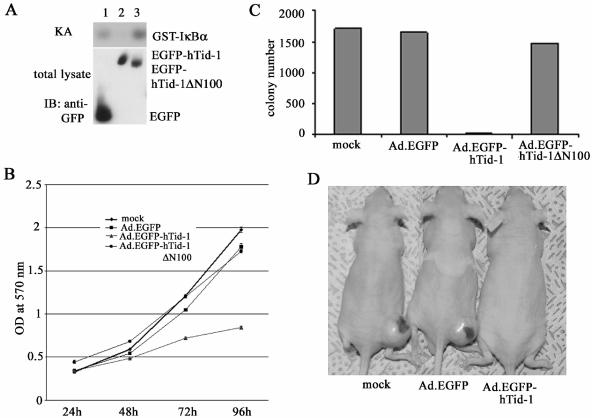FIG. 9.
Adenovirus-mediated gene transfer of hTid-1 into human melanoma cells suppresses proliferation. (A) Endogenous IKK activity in A375SM cells transduced with recombinant adenoviruses expressing EGFP, EGFP-hTid-1, and EGFP-hTid-1ΔN100 was assessed by the in vitro kinase assay. (B) Overexpression of hTid-1, not the ΔN100 mutant, inhibits cell proliferation of A375 cells. Melanoma cells (3 × 103/per well) transduced with recombinant adenoviruses were plated into 96-well plates and incubated at 37°C. The number of viable cells at different times was determined by MTT assay. (C) Wild-type hTid-1, not the ΔN100 mutant, suppresses colony-forming ability of A375 cells in soft agar. The adenovirus-transduced cells (5 × 105/per well) were plated into six-well plates in 0.6% agar at 37°C in a 5% CO2 incubator (29). Ten days after plating, the cells were stained and recorded. The results are average ± the SD in triplicate. (D) The photo shows mice injected with ex vivo transduced human melanoma at the end of the 6-week observation period.

